Lucidea’s Lens: Knowledge Management Thought Leaders Part 37 – Jessica Lipnack

Stan Garfield
Jessica Lipnack is an author, speaker, and editor who has written extensively about virtual teams.

She was an external consultant to Digital Equipment Corporation from 1984 to 1992. Jessica was the CEO and co-founder of NetAge from 1998 to 2015, where she and her husband Jeffrey Stamps (1944-2011) provided expertise on networks and collaboration. They wrote the books Networking, The Age of the Network, and Virtual Teams. She has consulted on collaboration and networks around the world. Jessica maintained the blog, Endless Knots, for 10 years.
Education
- Antioch College – BA, Philosophy, Literature, 1965 – 1970
Experience
- Author, Speaker, Editor – 1970 – Present
- Co-chair, Board of Directors – Buckminster Fuller Institute, 2016 – 2018
- CEO, Co-founder – NetAge, 1998 – 2015
Profiles
- NetAge
- Cutter Consortium
- Buckminster Fuller Institute
- IBS Case Development Centre
- Profiles in Knowledge
Books
Virtual Teams: People Working Across Boundaries with Technology with Jeffrey Stamps – Download
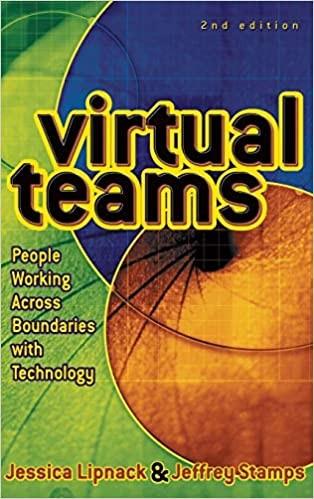
The Age of the Network: Organizing Principles for the 21st Century with Jeffrey Stamps – Download
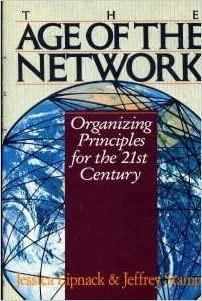
The Networking Book: People Connecting with People with Jeffrey Stamps – Download
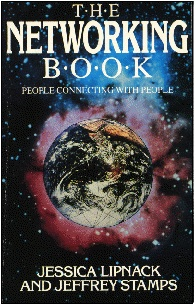
The TeamNet Factor: Bringing the Power of Boundary Crossing into the Heart of Your business with Jeffrey Stamps – Download
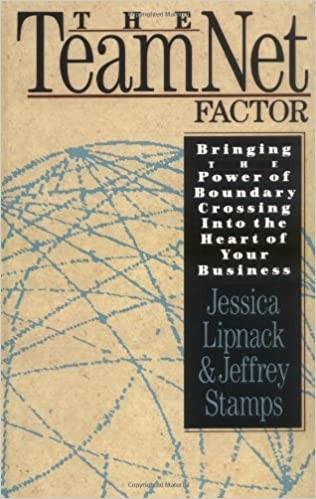
Networking, the First Report and Directory with Jeffrey Stamps
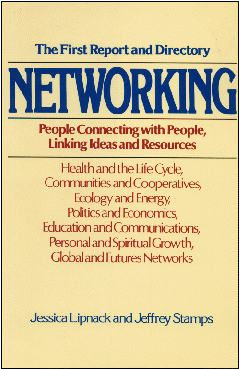
Book Chapters
- Advances in Appreciative Inquiry, Volume 1: Constructive Discourse and Human Organization edited by David Cooperrider and Michel Avital – Chapter 2: Appreciative Inquiry in the Age of the Network with Jeffrey Stamps
- The Handbook of High Performance Virtual Teams: A Toolkit for Collaborating Across Boundaries edited by Jill Nemiro, Michael Beyerlein, Lori Bradley, and Susan Beyerlein – Chapter 30: The Virtual, Networked Organization: How One Company Became Transparent with Jeffrey Stamps
Interviews
- The importance of virtual teams during COVID-19 by Laurence Lock Lee
- Working through Working from Home by Tom Stewart
Presentations
- Are Organizations Networks? with Jeffrey Stamps
- Virtual Teams 2.0, 3.0, 4… with Jeffrey Stamps
- Earth-OrgScope: Applying a Science of Organization Networks with Jeffrey Stamps
- Leading Virtual Teams: Managing People at a Distance with Terry Seamon
- The Transformational Power of Networks, Teamnets, and Virtual Teams with Jeffrey Stamps
Developing Networked Teams of Leaders for the High-Performance Learning Organization with Mike Prevou and Jeffrey Stamps
This slide is from 2008:
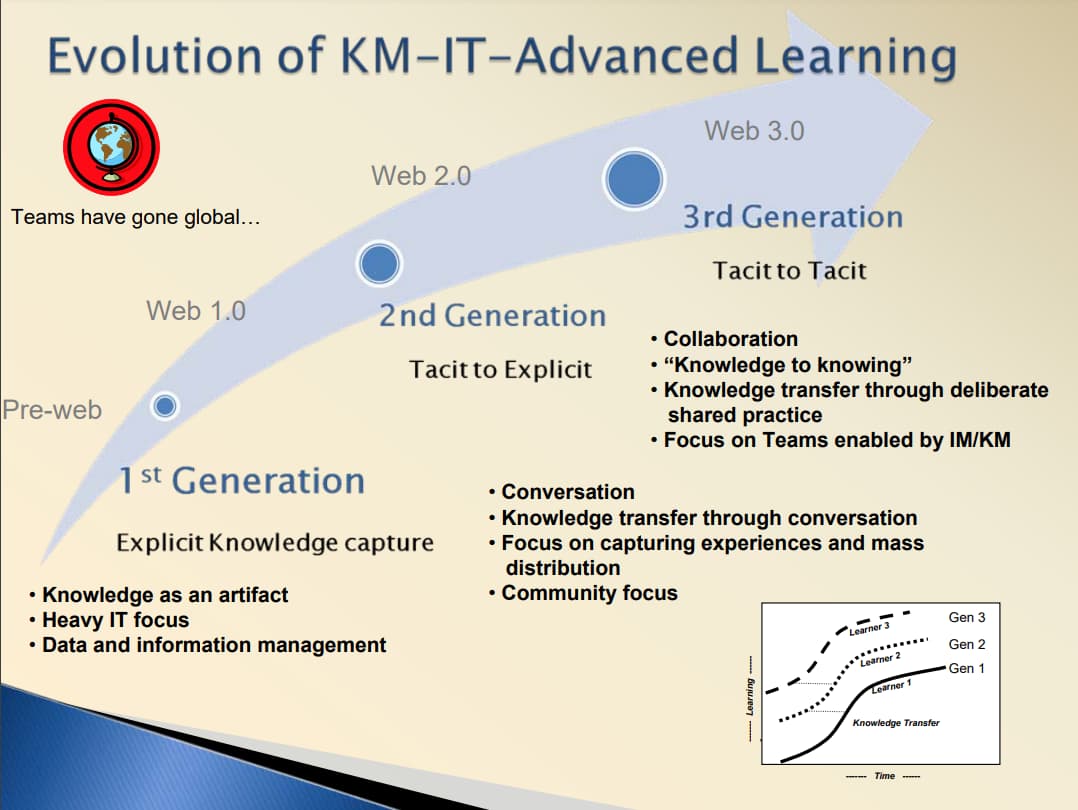
NetAge Site
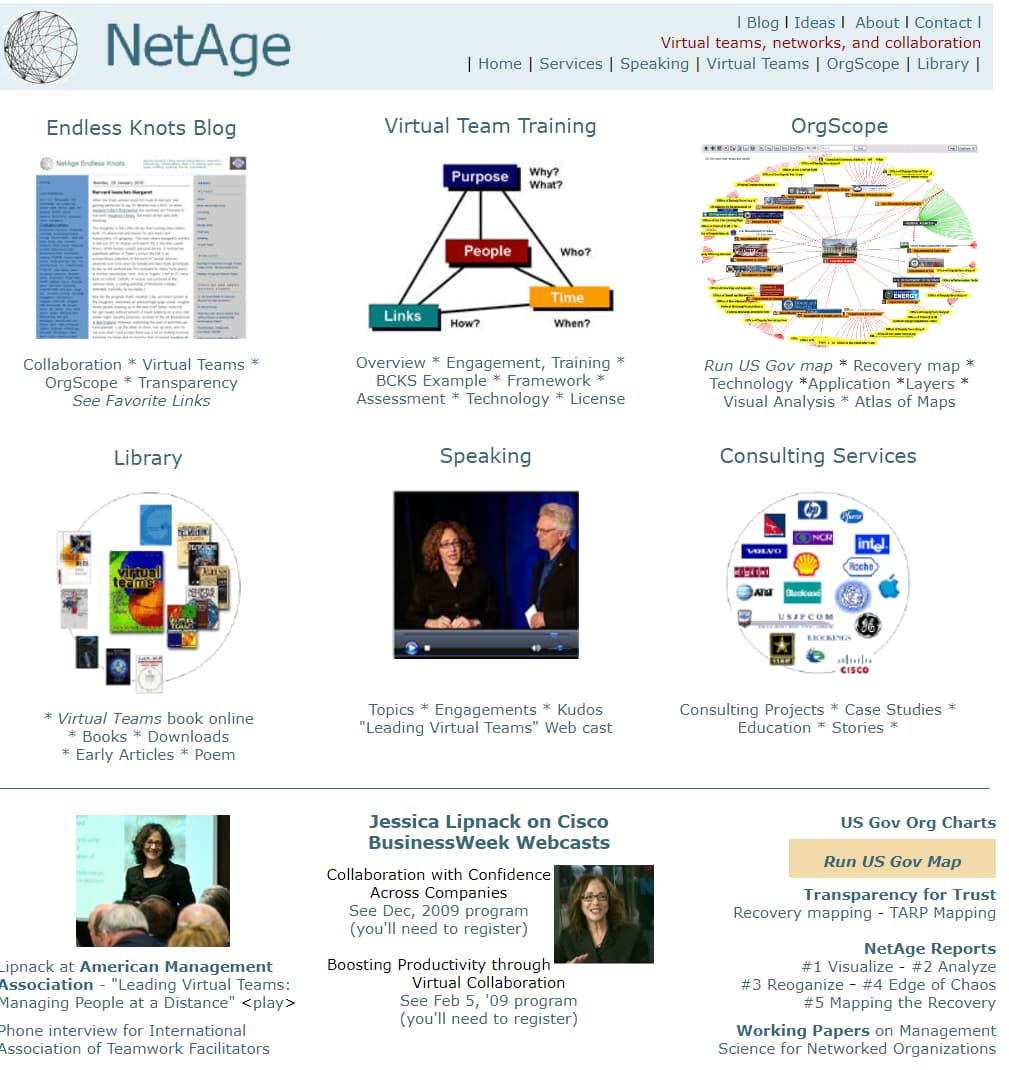
Posts
Articles
- Early Articles
- NetAge Reports
- Working Papers
- Semantic Scholar
- ResearchGate
- Google Scholar
- Academia.edu
Q and A with Jessica Lipnack – interviewed by Kathy Hansen
Q: The culture is abuzz about social media. To what extent and in what ways do you feel these venues are storytelling media?
A: You’re telling your story everywhere you appear online — when you write your profile, list your favorite music, post your pictures or videos. All of it together becomes your story. The blog is the most powerful storytelling device for me.
The power of storytelling for executives cannot be overemphasized. One colleague is using his blog to help transform his hospital’s culture — and clinical outcomes — simply by telling the ongoing story of what’s happening in his academic medical center.
Out of the office and into the virtual fire
And how do you encourage people to speak up during such a conversation? That overused word facilitation is appropriate here. Animating participation while managing airtime (no one dominates; everyone is heard) is the facilitator’s job, and the participants’ responsibility. Online facilitation requires even more vigilance than required for face-to-face meetings, which is already sometimes too much. You really have to pay attention to every word, the tempo of the meeting, where comments can be woven together, and whether everyone is participating.
Which points to participant responsibility: No furtively playing solitaire while the meeting is going on. Everyone has to get used to asynchronous call-and-response. A comment made at 9am may not receive a reply for another day or two. That’s okay. If it’s not, stay calm and – shriek – call the person. On the phone. In this distracted, ADHD, partial-attention world, mindfulness, the term du jour, needs to be our mantra.

Stan Garfield
Please enjoy Stan’s blog posts offering advice and insights drawn from many years as a KM practitioner. You may also want to download a free copy of his book, Lucidea’s Lens: Special Librarians & Information Specialists; The Five Cs of KM from Lucidea Press, and its precursor, Proven Practices for Implementing a Knowledge Management Program. Learn about Lucidea’s Presto, SydneyEnterprise, and GeniePlus software with unrivaled KM capabilities that enable successful knowledge curation and sharing.
Never miss another post. Subscribe today!
Similar Posts
Lucidea’s Lens: Knowledge Management Thought Leaders Part 106 – Hubert Saint-Onge
As the creator of the Knowledge Assets Framework Hubert has shaped how businesses integrate strategy leadership and knowledge sharing to drive performance.
Lucidea’s Lens: Knowledge Management Thought Leaders
Part 105 – James Robertson
James Robertson is a pioneer in intranet strategy and digital workplace design helping organizations create seamless employee experiences. As the Founder of Step Two and a respected industry voice he has shaped best practices in content management portals and digital experience design.
Lucidea’s Lens: Knowledge Management Thought Leaders
Part 104 – Vincent Ribière
Vincent Ribière advances knowledge and innovation management through AI creativity and KM. Explore his work in academia research and industry leadership.
Lucidea’s Lens: Knowledge Management Thought Leaders Part 103 – Tony Rhem
In this edition of Lucidea’s Lens: Knowledge Management Thought Leaders we highlight Dr. Tony Rhem a leading expert in AI big data information architecture and innovation. As CEO of AJ Rhem & Associates Tony has shaped the fields of knowledge management governance and emerging technologies.





Leave a Comment
Comments are reviewed and must adhere to our comments policy.
0 Comments